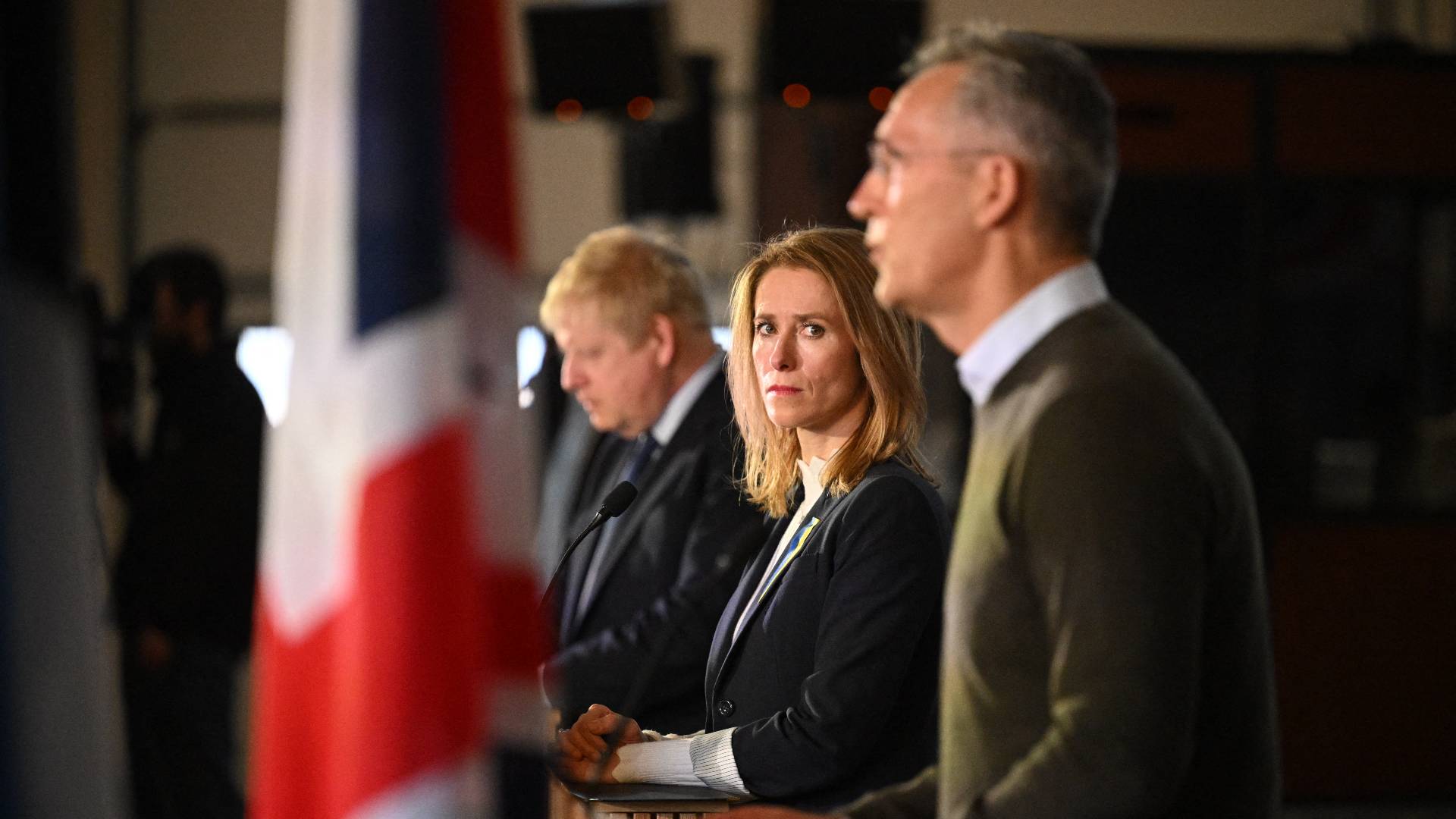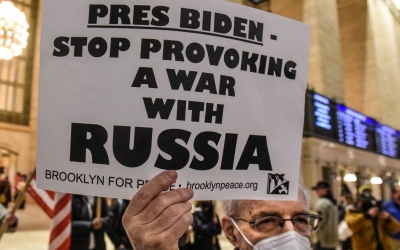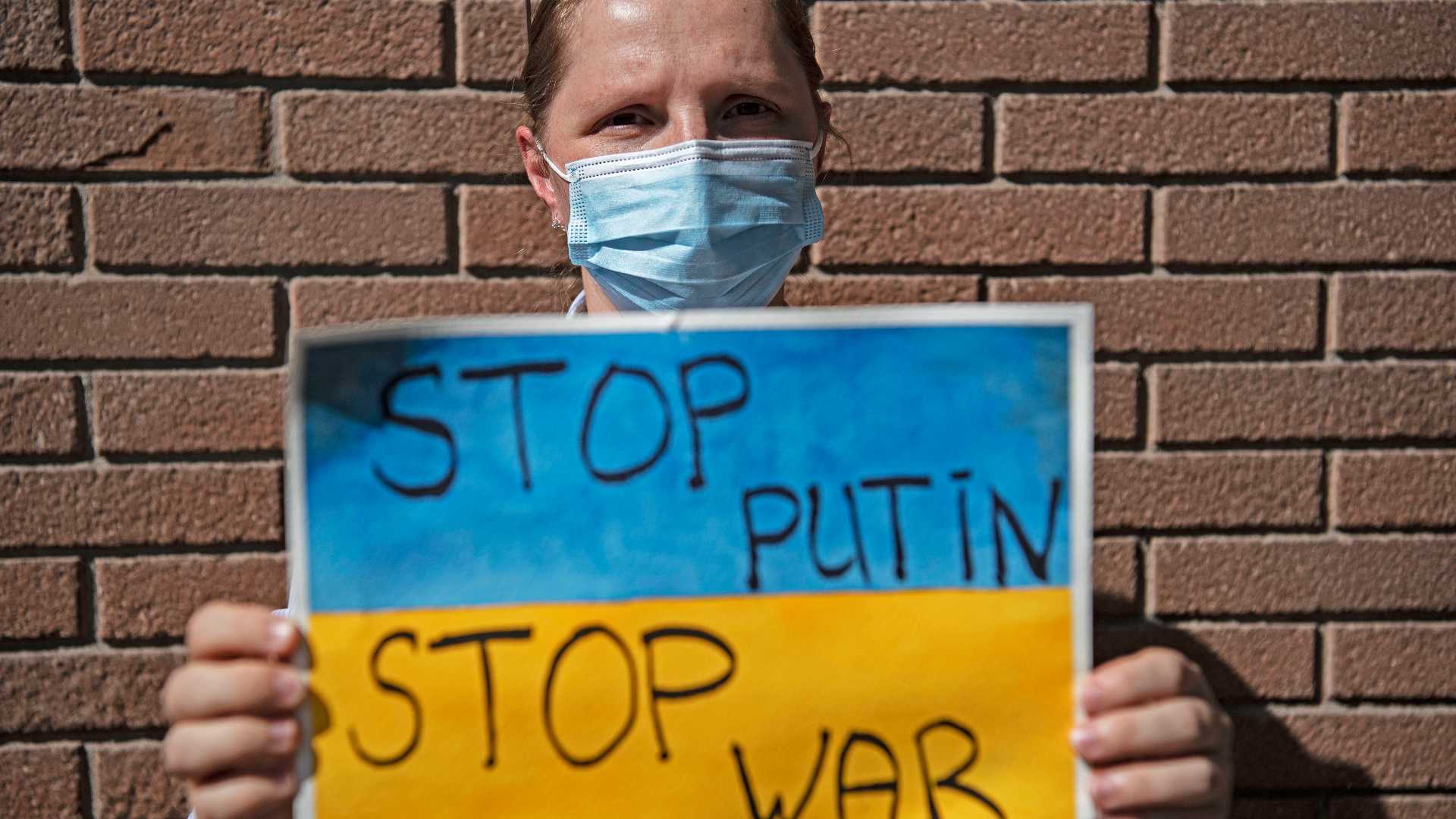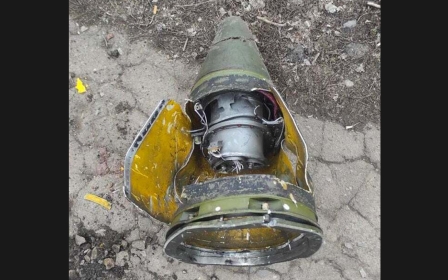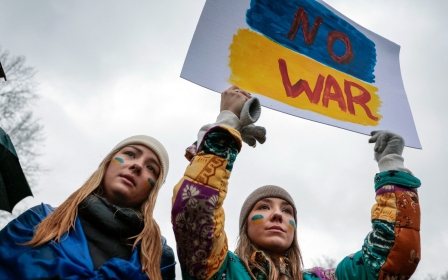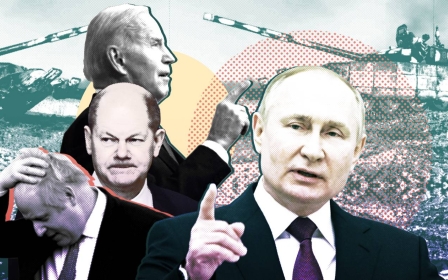Russia-Ukraine war: A bonfire of the vanities for Putin and Nato
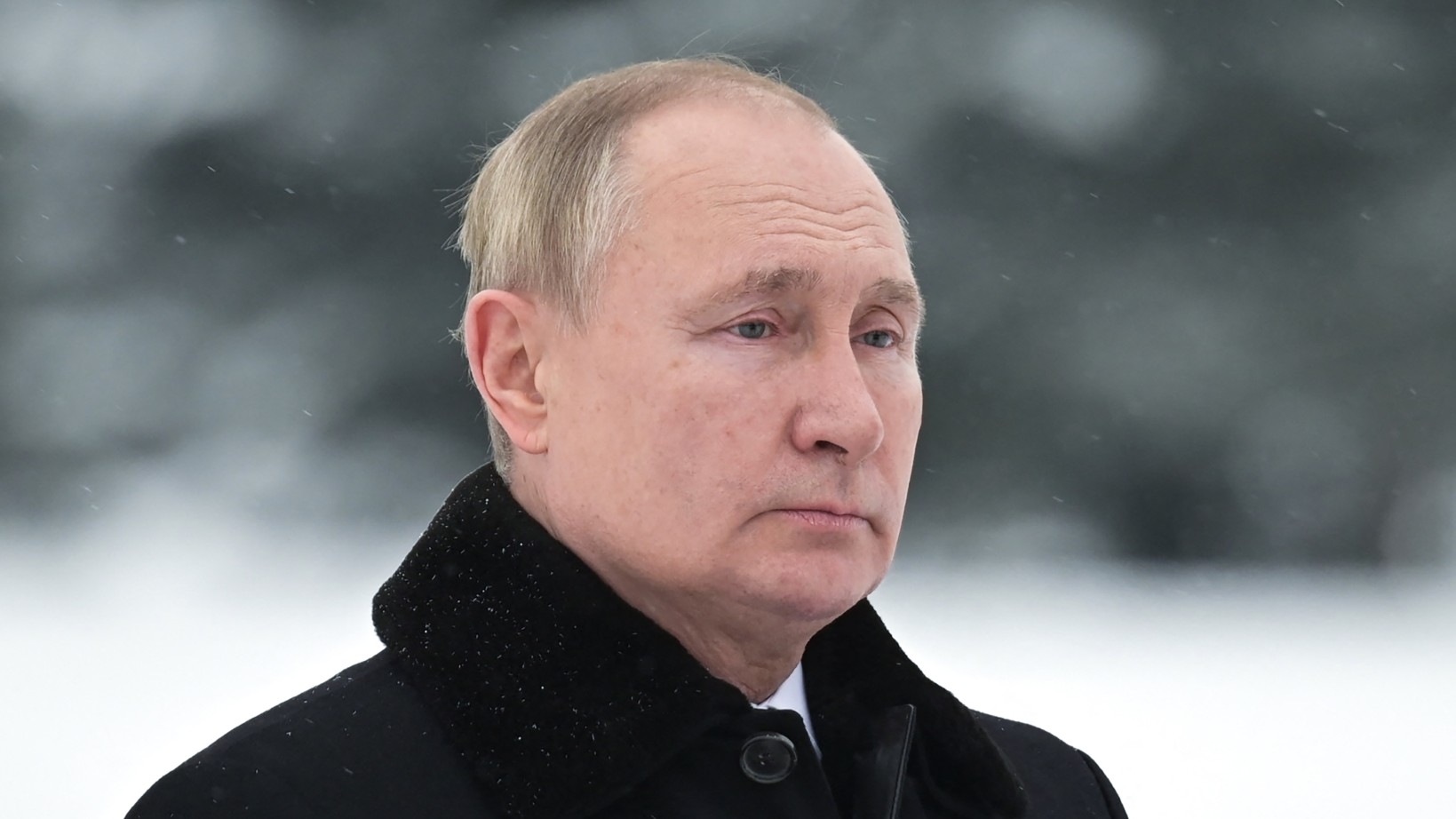
In invading Ukraine, Vladimir Putin has made the biggest mistake of his 22-year career as leader of Russia.
Whether a slow crushing of Ukraine was intended is another matter. This course is now set , and cannot be undone. Putin’s power at home and abroad was to a large extent built on ambiguity and surprise. Plausible deniability was an art form in his hands.
It has only taken days for Putin the pragmatist to become Putin the war criminal, little more than a Milosevic or Karadjic
Russia was neither as weak nor as powerful as it seemed. Putin was neither as autocratic nor as liberal as he appeared. A small library of books was feverishly penned to uncover the real Putin.
Ultimately the consensus settled on the word pragmatist.
First as a Bush family groupie eager to join Nato, then as an aggrieved nationalist waving a big stick in his Munich speech back in 2007, Putin managed throughout to conserve the image of wily, steely eyed veteran on the world stage, whose intentions few around him could divine.
New MEE newsletter: Jerusalem Dispatch
Sign up to get the latest insights and analysis on Israel-Palestine, alongside Turkey Unpacked and other MEE newsletters
A fiscal conservative, he learned in power not to challenge the oligarchs, but become one of them. Just as long as they presented him with the right gifts like loyal boyars they were, he did not touch their assets. Yet it has only taken days for Putin the pragmatist to become Putin the war criminal, little more than a Milosevic or Karadzic. Ukraine has become a rerun of Kosovo in reverse.
This, from Putin’s point of view, is a huge miscalculation. The loss of much of what Putin has achieved in the last two decades to restore Russia's influence can not be counted in the number of civilians he has killed. We should never make the mistake of thinking that Putin is remotely moved by the bloodshed or human suffering he causes.
A huge miscalculation
Russia has used thermobaric weapons before in Grozny in 1994 and 2000. Putin came to fame in Russia using the very tactics in Chechnya that he is now using in Ukraine. In 1999 Putin said: "We will be chasing the terrorists everywhere. If it’s airport - okay let it be airport. Beg your pardon, we will get them in the toilet, we’ll waste them in an outhouse at long last."
And in 2022 he said: "Do not allow neo-Nazis and Banderites to use your children, your wives and the elderly as a human shield. Take power into your own hands. It seems that it will be easier for us to come to an agreement than with this gang of drug addicts and neo-Nazis."
Little has changed during that time.
Nor will what is about to happen to Kyiv and Kharkiv be news to East Aleppo and Idlib in Syria or Tripoli in Libya. The difference now is that East Aleppo or Idlib is happening on Germany’s doorstep.
So his miscalculation is this: it is not what Putin is doing, but where he is doing it. Anywhere between 5000 and 8000 civilians were killed in the battle of Grozny in 1999-2000 and the world did not blink.
At first Russian forces seized control of a strategic ridge above the city. They made several attempts to enter that were aborted. They then blanketed the town with BM-21 Grads, Scuds, cluster bombs and thermobaric bombs, before entering the town with small groups trained in urban warfare.
Any of this sound familiar?
By 1999, Russia had learned the lesson of the assault it had made five years earlier. This time around there were to be no reporters like me, Sky, CNN and BBC crews waxing lyrical about the fate of a small mountain people. No one could see what happened to Russian columns in the streets of Grozny in 2000 as we did in 1994.
And if what was really going on in Grozny had appeared on news screens in 2000, the administration in Washington at the time would have ignored it. After 9/11, Putin was rewarded for his efforts in suppressing Chechnya as an honorary member of Bush’s war on terror.
Putin is doing the same thing to Ukraine and now he is being vilified.
Russia vs Nato
I don’t think he built the reaction he is getting in Europe into his pre-war planning. Ukraine is not a faraway land in the Caucasus. It's right here in Europe with some very well-armed neighbours.
Day by day the prospect of Nato and Russia forces confronting each other in combat increases. It is as if Europe went to bed in 2022 and woke up in 1941
Day by day those neighbours are asking themselves whether they should do more than just send anti-tank rockets, syringes and dressings. And a no-fly zone is being touted. General Sir Richard Barrons, ex-head of UK Joint Forces Command, told Newsnight that continued Russian aggression may result in no-fly zones, conceding “It does mean war with Russia..."
Day by day the prospect of Nato and Russia forces confronting each other in combat increases. It is as if Europe went to bed in 2022 and woke up in 1941. To wave all this away and say Putin has now got China, and a common Eurasian project, is to say the least premature.
Is Beijing really ready to pick up Putin’s tab? It had shown no sign of rushing into Afghanistan, a central Asian country ripe for the picking after Joe Biden abandoned it both militarily and financially.
China has pledged the Taliban a modest, some might say paltry, $31m in food, medicine, Covid-19 vaccines and other aid, barely more than Pakistan, a much poorer country. Bilal Karimi, a Taliban spokesman at the Ministry of Information, described China's relations with the new Islamic Emirate as "mysterious", Nikkei Asia reported. That may be an understatement.
A Euroasian powerhouse stretching across the globe looks good on paper and answers to a deep feeling in Central and Western Asia of weariness at America’s attempts to throw its economic and military weight about. But this highway is a long way from completion. To make any sense it needs to end somewhere, such as the rich markets in Europe.
At the very least, this new supply chain needs Germany as the end consumer, and Germany has just made a very important decision. It has abandoned its reluctance to use its armies in combat, a policy that goes all the way back to de-nazification.
This cannot have been in Putin’s calculations when he was plotting this invasion. If Moscow has shown scant respect for buffer states, it has historically taken Berlin seriously.
Out of control
Reducing the cities of Ukraine to rubble cannot be part of President Xi Jinping’s grand plan either. Even if it calms down, a war that shatters Ukraine will erect a huge roadblock to east-west logistics. China's offer to negotiate a truce stems at least in part from concern about what its partnership with Putin may lead it into. China for one is not yet prepared for a total break with the US.
It is not a mere pipeline in the North Sea that has disappeared. Russia’s entire western frontier has just closed. When Europe’s tectonic plates collide as they are doing now before our eyes, it takes a long time for business as usual to return.
The theory that Putin is trying to recreate the Soviet Union also does not stand up to scrutiny. The Russian Federation is a far smaller creature than the Soviet Union was. It simply does not have the resources Khrushchev had when tanks went in to crush Hungary in 1956 or that Brezhnev sent into Czechoslovakia in 1968.
Russia ranks just 49th on income and purchasing power of the list of richest countries, and does not even make it on that list if judged by average gross domestic product. Take away oil, and you have an economy far less developed or diversified than Turkey. The bulk of Russia's foreign reserves will now be frozen by the actions of the big central banks. Russia's economy is not that strong that it can withstand the massive disinvestment that is now taking place.
Much of Russia’s infrastructure still dates from the Brezhnev era.
Everything points to a miscalculation of epic proportions. Putin needed to take over Kyiv within days and hasn't. Putin needed ethnic Russians in Kharkiv to come out and toast their liberators. Instead, he has got all Ukrainians outside the two enclaves in whose name he launched the invasion learning how to make petrol bombs. This could not have been in the script.
Putin needed a quick bushfire war of the post-Soviet model and has got a conflict of far larger dimensions on his hands. Russia has now made nuclear threats twice in as many days.
The last is contained in this statement from the Russian foreign ministry. "EU citizens and structures involved in supplying lethal weapons and fuel and lubricants to the Armed Forces of Ukraine will be responsible for any consequences of such actions in the context of the ongoing special military operation. They cannot fail to understand the degree of danger of the consequences.”
In a way this statement was right. But was a nuclear stand-off with Nato part of Putin’s plan? I doubt it. The danger of Ukraine stems from the fact that it is out of control.
The intellectual foundation
Historically, there can be no doubt that the West laid the seeds of this conflict by pushing Nato eastwards. Wise veterans of the Cold War saw the dangers and were ignored.
George Kennan laid the intellectual foundations of the US Cold War with his "long telegram" from Moscow in February 1946, which he followed with an article in Foreign Affairs, signed "X," in July 1947. He was horrified by Nato’s expansion in 1998.
Was a nuclear stand off with Nato part of Putin’s plan? I doubt it. The danger of Ukraine stems from the fact that it is out of control
This is what he told the New York Times: "I think it is the beginning of a new cold war. I think the Russians will gradually react quite adversely and it will affect their policies. I think it is a tragic mistake. There was no reason for this whatsoever. No one was threatening anybody else. This expansion would make the founding fathers of this country turn over in their graves.
“We have signed up to protect a whole series of countries, even though we have neither the resources nor the intention to do so in any serious way. [NATO expansion] was simply a lighthearted action by a Senate that has no real interest in foreign affairs. What bothers me is how superficial and ill informed the whole Senate debate was. I was particularly bothered by the references to Russia as a country dying to attack Western Europe.
“Don’t people understand? Our differences in the Cold War were with the Soviet Communist regime. And now we are turning our backs on the very people who mounted the greatest bloodless revolution in history to remove that Soviet regime. And Russia’s democracy is as far advanced, if not farther, as any of these countries we’ve just signed up to defend from Russia.
"Of course there is going to be a bad reaction from Russia, and then [the Nato expanders] will say that we always told you that is how the Russians are - but this is just wrong."
Now Putin has pulled the trigger. Ukraine has become the bonfire of vanities, Putin’s and Nato’s. The way things stand is that fire is out of control and it will affect nations far beyond Russia’s immediate borders.
The views expressed in this article belong to the author and do not necessarily reflect the editorial policy of Middle East Eye.
This article is available in French on Middle East Eye French edition.
Middle East Eye delivers independent and unrivalled coverage and analysis of the Middle East, North Africa and beyond. To learn more about republishing this content and the associated fees, please fill out this form. More about MEE can be found here.



